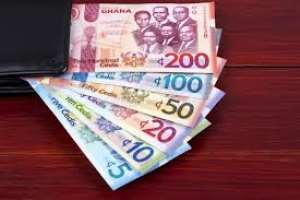
The global economy is intrinsically linked, and major crises invariably trigger economic ripples felt across the world. The COVID-19 pandemic brought economies to a standstill, disrupting supply chains and decimating industries.
More recently, the Russia-Ukraine war has exacerbated inflationary pressures, particularly on energy and food prices, further contributing to global economic instability. In such turbulent times, any currency demonstrating resilience is worthy of note.
Ghana, under the leadership of President John Mahama, has seen its currency, the Cedi, exhibit a surprising stability against the US Dollar in recent months.
Within the first six months of his new administration, the Cedi has demonstrably strengthened, defying the prevailing trend of global economic uncertainty. This positive performance has garnered attention and sparked debate about the factors contributing to its strength.
The most recent test for the Cedi came with the escalating tensions between Israel and Iran. Historically, geopolitical uncertainty often triggers a flight to safety, with investors seeking the security of the US Dollar, thereby strengthening its value and weakening emerging market currencies. The looming threat of a wider conflict understandably sparked concerns that the Cedi’s recent gains could be quickly erased.
However, the Cedi has, thus far, weathered the storm. Despite the volatile global landscape, the Ghanaian currency has remained remarkably stable, hovering around GHC10.30 to 1 US Dollar. This resilience has surprised many, particularly those who anticipated a significant depreciation in the face of escalating geopolitical risks.
The crucial question, of course, is what is driving this stability. The Mahama administration attributes this positive trend directly to the implementation of sound economic policies.
This sustained strength is being presented as more than just a fleeting upward blip. Proponents of the current administration argue that the Cedi’s performance is not an artificial manipulation of the market, but rather a genuine reflection of the underlying strength of the Ghanaian economy, fostered by President Mahama’s leadership and proactive economic management.
However, skepticism remains. Critics question whether external factors, such as favourable commodity prices or increased foreign investment unrelated to specific policy changes, might be playing a significant role. They also suggest that a more comprehensive analysis, taking into account inflation rates, import-export balances, and the overall debt burden, is necessary to truly assess the long-term sustainability of the Cedi’s stability.
Ultimately, the long-term trajectory of the Cedi remains to be seen. While the current stability is a positive development, sustained success will require ongoing prudent economic management and a commitment to addressing the underlying challenges facing the Ghanaian economy.
The ability of the Cedi to withstand future global economic shocks will be a key indicator of the true effectiveness of President Mahama’s policies and their impact on the long-term prosperity of Ghana. The coming months will undoubtedly provide a crucial test of this newfound stability and offer a clearer picture of its sustainability.
Anthony Obeng Afrane


